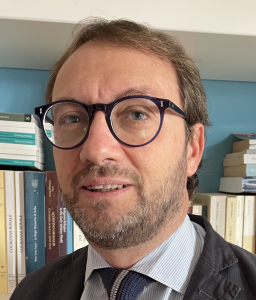
Fabrizio D’Avenia, University of Palermo
Sicilia Sacra Between Bishops, Missionaries and Inquisitors: Mobility, Encounters, Conflicts
The Catholic monarchy par excellence, as the Spanish monarchy was called in the seventeenth century, constituted a space for ample mobility for a host of clergy of all types, diverse in geographical origin and religious descent (such us conversos and moriscos). Prominent among them were royal patronage bishops, crown-cardinals, missionaries (Jesuits and Capuchins above all) playing a leading role in the evangelization of both overseas and European “other” Indies, inquisitors of the Spanish Holy Office. Such prelates emerged as agents of dissemination of knowledge, skills, and products (both material and immaterial) in the fields of politics, culture, law, theology, and the arts. This lecture focuses on Sicily, which represented a privileged context for this ecclesiastical mobility more than other Italian dominions of the Spanish monarchy, i.e. Naples, Milan and Sardinia. Indeed, also thanks to its geopolitical and geo-cultural position, the island became an exemplary religious theatre of cultural, political and jurisdictional encounters (and clashes). The first decades of the seventeenth century, in particular, which also saw a Tridentine revival of cults and devotions, is a stimulating field for the investigation of this Sicilia sacra, as it was “entitled” by the royal historiographer Rocco Pirri (1577-1651), whose work paved the way for several national ecclesiastical histories, in Europe and beyond.
Fabrizio D’Avenia (1970) is Full Professor of History of Christianity and Churches at the University of Palermo (Department of Cultures and Societies) and Coordinator of the Master’s Degree “Religions and Cultures”. He is PI for the project ITSERR – Italian Strengthening of the ESFRI RI RESILIENCE (European Research Infrastructure for Religious Studies), funded by Next Generation EU, and scientific coordinator for the H2020 SwafS project FIT FORTHEM – Fostering Institutional Transformation of R&I Policies in European Universities.
His research interests focus on ecclesiastical jurisdictions and careers, Tridentine reforms, Spanish conversos, and the Order of Malta. He has published 3 monographs, 45 book chapters and journal articles, and has edited 3 volumes. Since 2013 he is member of the External Advisory Board of the “Laboratorio de Estudios Judeoconversos” (LEJ) of the Universidad de Córdoba (Spain). In 2018 he was visiting professor at the Université Paris-Sorbonne and Directeur d’Etudes Associés of the “Fondation Maison des Sciences de l’Homme” (Paris). His latest book is Giannettino Doria. Cardinale della Corona Spagnola (1573–1642), Rome: Viella, 2021.